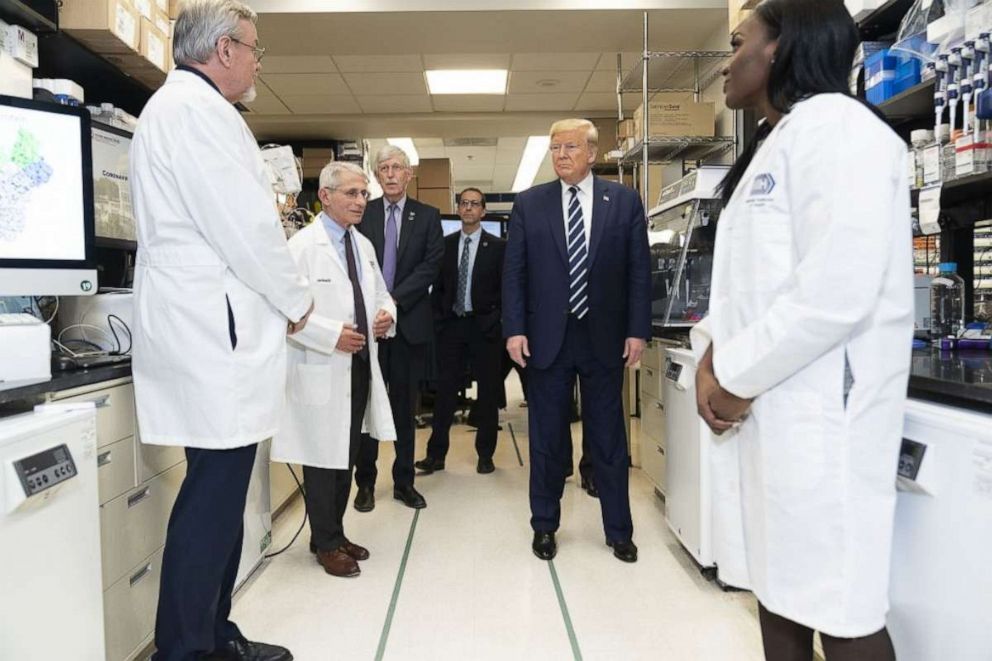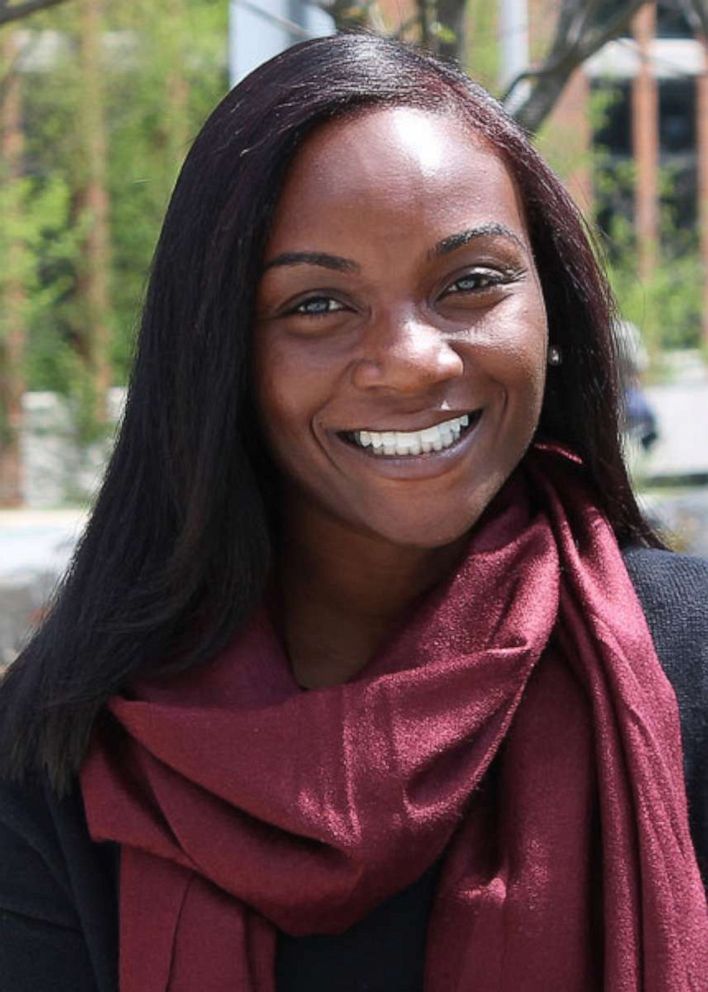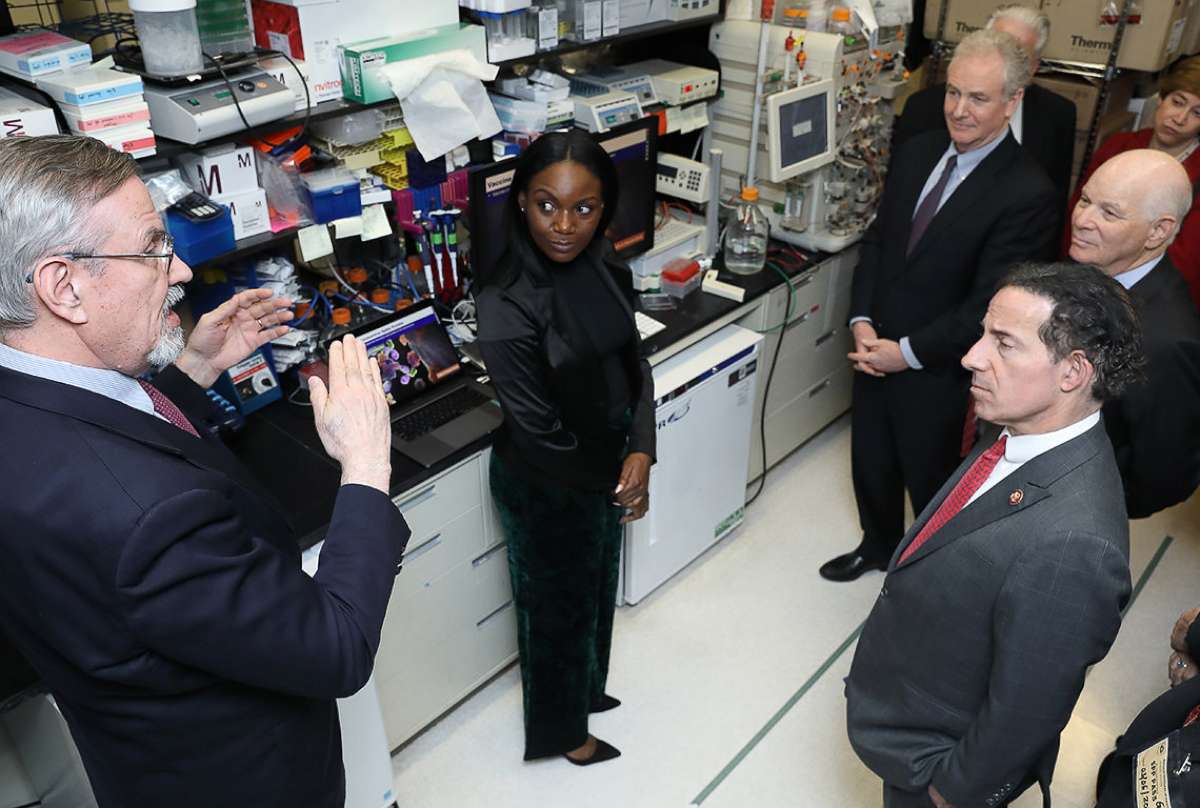Kizzmekia Corbett, an African American woman, is praised as key scientist behind COVID-19 vaccine
Dr. Anthony Fauci said Kizzmekia Corbett's involvement is a sign of hope.
Dr. Anthony Fauci, the nation's top infectious disease expert and a constant presence on TV during the coronavirus pandemic, was asked a blunt question during a forum hosted last week by the National Urban League: "Can you talk about the input of African American scientists in the vaccine process?"
Fauci did not hesitate when giving his answer.
"The very vaccine that's one of the two that has absolutely exquisite levels -- 94 to 95% efficacy against clinical disease and almost 100% efficacy against serious disease that are shown to be clearly safe -- that vaccine was actually developed in my institute's vaccine research center by a team of scientists led by Dr. Barney Graham and his close colleague, Dr. Kizzmekia Corbett, or Kizzy Corbett," Fauci told the forum. "Kizzy is an African American scientist who is right at the forefront of the development of the vaccine."

Corbett is an expert on the front lines of the global race for a SARS-CoV-2 vaccine, and someone who will go down in history as one of the key players in developing the science that could end the pandemic.
She is one of the National Institutes of Health's leading scientists behind the government's search for a vaccine. Corbett is part of a team at NIH that worked with Moderna, the pharmaceutical company that developed one of the two mRNA vaccines that has shown to be more than 90% effective.
Moderna's vaccine is expected to receive emergency use authorization from the U.S. Food and Drug Administration this month.
The other mRNA vaccine, developed by Pfizer, won emergency use authorization from the FDA on Friday.
As of now, the coronavirus has killed nearly 300,000 people and infected more than 15 million people in the U.S.
Even before Corbett took on one of the most challenging tasks of her professional career, she was a force to be reckoned with. As a student,she was selected to participate in Project SEED, a program for gifted minority students that allowed her to study chemistry in labs at the University of North Carolina at Chapel Hill and eventually landed a full ride to the University of Maryland Baltimore County, according to The Washington Post.
Corbett spent her summers at laboratories and earned a summer internship at the NIH, the very place where she would be instrumental in developing a vaccine for the coronavirus.
After graduating, Corbett enrolled in a doctorate program at UNC-Chapel Hill, where she worked as a research assistant studying virus infections and eventually received a PhD in microbiology and immunology, according to her LinkedIn page.
Her work with such pathogens began when she joined the NIH's Vaccine Research Center as a postdoctoral fellow in 2014.
She told ABC News that she could have never anticipated what she has since been able to accomplish on Fauci's team.

"The reason that I started to work in coronavirus was not to ever develop a vaccine, but really to have such a strong understanding in vaccine immune responses that we could potentially develop one," she said.
This year, Corbett said, she has had to put her last six years of training to work.
In early January, "with the knowledge that there was a respiratory outbreak in the Wuhan district of China, [Dr. Barney Graham] started sending emails essentially telling me and the team to buckle up," Corbett said.
Early in the pandemic, when Fauci predicted the world might see an effective vaccine in about a year, Corbett said she knew it was possible.
"It was certainly doable if all the things and all the pieces of the puzzle came together," she said.
Corbett first made headlines on March 3 as part of a team of scientists who spoke with President Donald Trump at the NIH. At the time, the global impact of the COVID-19 crisis had yet to be felt in America.

Corbett said that her participation during that event with the president marked an important step forward for young scientists and people of color.
"I felt like it was necessary to be seen and to not be a hidden figure so to speak," Corbett said. "I felt that it was important to do that because the level of visibility that it would have to younger scientists and also to people of color who have often worked behind the scenes and essentially [who have] done the dirty work for these large efforts toward a vaccine."
"This person who looks like you has been working on this for several years and I also wanted it to be visible because I wanted people to understand that I stood by the work that I'd done for so long as well," she added.
Fauci said Corbett's role as one of the scientists behind the vaccines should be a sign of hope for Black Americans who are hesitant to trust the vaccine.
Throughout the coronavirus pandemic, Black communities have been infected and killed at a disproportionate rate across the country, according to the CDC. But according to a November Axios/Ipsos poll, only 55% of Black Americans said they would take a vaccine if it was proven safe and effected by officials.
"So, the first thing you might want to say to my African American brothers and sisters is that the vaccine that you're going to be taking was developed by an African American woman," Fauci said. "And that is just a fact."




